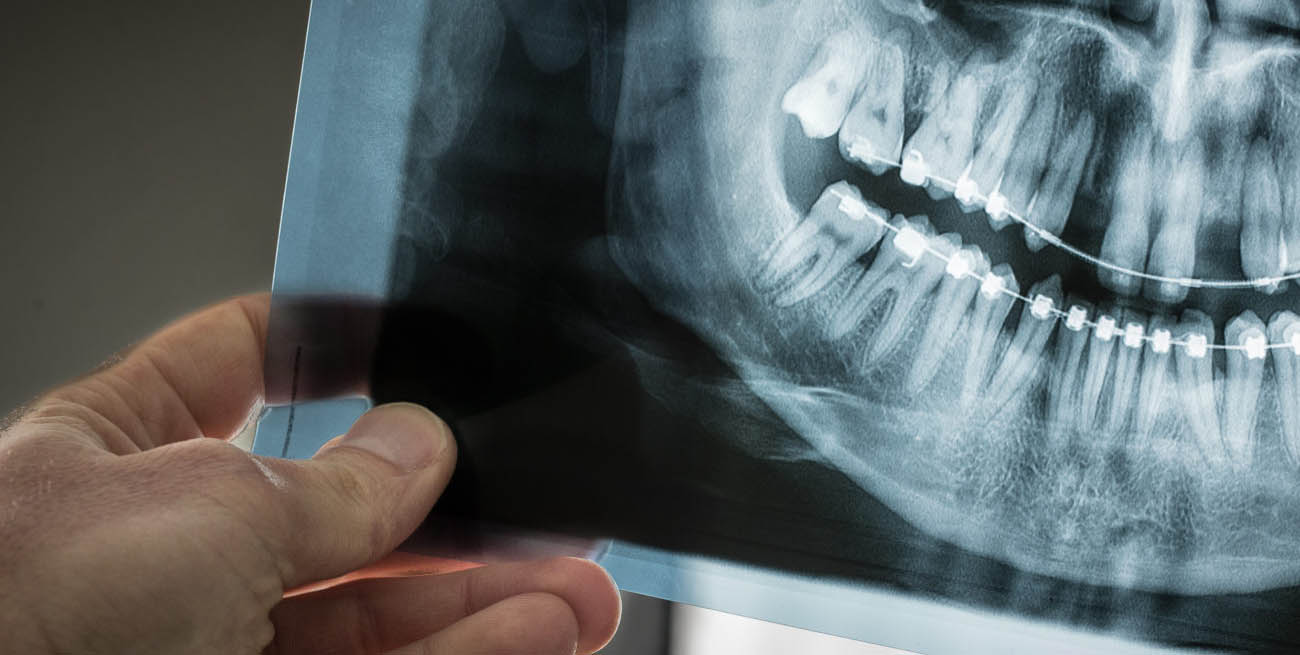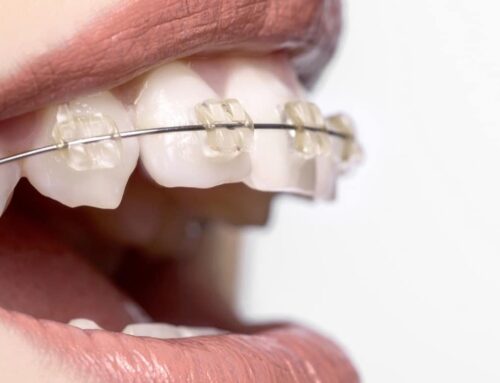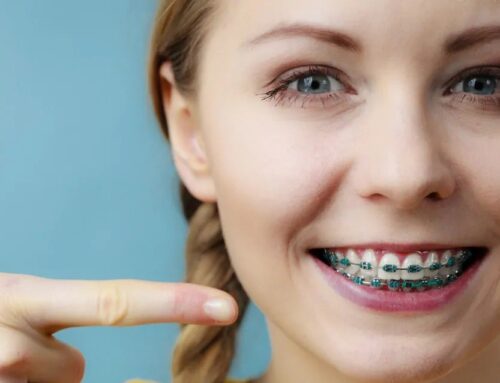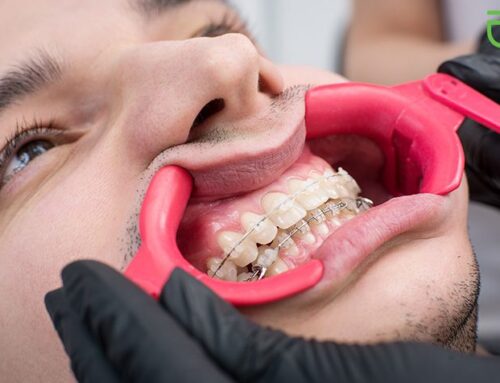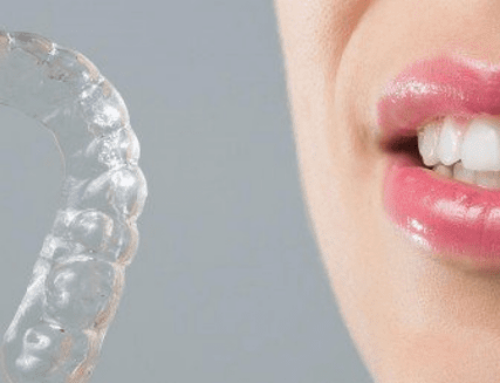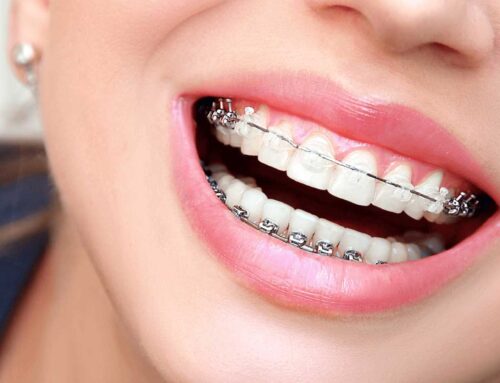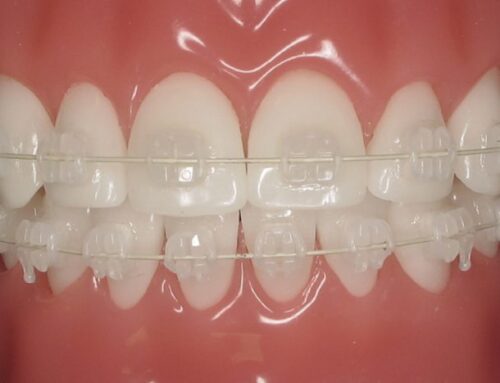Should Wisdom Teeth Be Extracted Before or After Braces?
For many teens and young adults, a time will come when they will need to have one or more wisdom teeth extracted from their jaw. A time may also come when misaligned and crooked teeth should be corrected with the use of braces. However, there can be misconceptions around which procedure should happen first, braces or wisdom teeth. Learn the facts about braces and wisdom teeth, and why one should happen before the other.
For most of our childhood, dental care usually revolves around things like fluoride treatments, cavity prevention, and the loss of baby teeth as our permanent teeth grow into place. When we get into our teenage years, the discussions we have about dental health start to shift towards different topics, namely whether or not we need to get braces or if we may need to have wisdom teeth extracted. Some patients may only need to concern themselves with one or the other, however there are many cases where both orthodontic treatment and wisdom teeth extractions are recommended. The question then becomes; should you get braces first, or have wisdom teeth extracted first?
The answer can be quite simple, or it can be much more complicated in some situations. To understand why dentists and orthodontists don’t always have a standard answer for this question requires first understanding why each procedure is necessary on their own. Let’s begin with a closer look at wisdom teeth.
What Are Wisdom Teeth, and Why Do We Have Them?
As our teeth start to emerge in our infancy and we obtain our full set of baby teeth, we do not have as many as we do when we are full-grown adults. This is simply part of the maturing process as our jaws grow and expand, allowing more space for our adult teeth to come in. Around age 12 we start to get our second set of molars at the very back of our jaws. In our late teens, often around age 17, a third set of molars may start to emerge.
These third molars are more commonly known as wisdom teeth. In essence, wisdom teeth are evolutionary throwbacks to when the diet of our ancient ancestors necessitated additional grinding teeth. However, human advancement has resulted in a situation where we no longer need a third set of molars to suit our dietary needs and lifestyle. Biological evolution continues to progress, and over time the human jaw has gradually reduced in size accordingly. Thus, the physical size of most people’s jaws today is no longer sufficient to effectively hold a third set of molars without complications or problems arising.
Why Do Wisdom Teeth Usually Need to Be Removed?
Because the jaw is typically just not big enough to have a third set of molars emerge, wisdom teeth can cause major disruption to the alignment of the other teeth in the jaw, negatively affecting the bite pattern. This can lead to significant dental health issues. These include such problems as damage to the adjacent teeth, gum inflammation, excessive stress on the jaw, pain, headaches, speech impediments, difficulty chewing, tooth grinding, and potential sinus complications.
In many cases, wisdom teeth don’t even grow in such a way that they would emerge like the other teeth in the jaw. Frequently, patients experience wisdom teeth growing at odd angles or even horizontally towards the other teeth, becoming impacted in the jaw. If left in place, the impacted wisdom teeth can cause infections, abscesses, bone density loss, and other harmful conditions that must be treated with great urgency. In general, since wisdom teeth offer no real benefit but can lead to a host of substantial dental health problems, it’s best to have them removed before they can do any damage.
About 60% of all people will need to have at least one wisdom tooth extracted in their lifetime. Many of these will have 4 wisdom teeth extracted, but it is quite common for there to be instances where only 1, 2, or 3 wisdom teeth may need to be removed. This will be determined based on the specific condition of the patient’s jaw and how much available room there is to accommodate the extra teeth. In fact, some patients don’t even end up growing wisdom teeth at all!
How Can Wisdom Teeth Affect Braces & Orthodontic Treatments?
Treatment plans can be impacted by wisdom teeth before, during, or after the orthodontics procedure. In the event that wisdom teeth start to emerge or push against the teeth before braces, this can shift the teeth into an even worse state of misalignment. This could necessitate a longer orthodontic treatment plan or could require additional steps during the treatment in order to correct the situation.
If wisdom teeth emerge in the middle of the orthodontic treatment, it can hinder the effectiveness of the braces, cause pain and discomfort, and require more urgent extraction to prevent problems from worsening. For people who have completed their orthodontic treatment and have had their braces removed, wisdom teeth can push against the newly aligned teeth and shift them back to a state of misalignment, undoing the results of the braces.
As you have likely surmised, none of these situations are desirable. Fortunately, they are not unavoidable. With the right treatment plan in place, any potential complications that wisdom teeth may present can be mitigated and prevented. So, that brings us to the big question; should the wisdom teeth be extracted before braces, or after braces?
Is It Better to Remove Wisdom Teeth Before or After Braces?
As with so many other questions we ask in life, the answer is, “it depends”.
There are too many factors to consider for this type of question to have a definitive standard answer for every patient. In the end, it’s entirely situational based on the specific needs of each individual patient. For example, if the person starts to experience early eruption of wisdom teeth before age 17, the recommendation will likely be that they should be removed before braces begin in order to obtain the optimum results with no risk of disruption from wisdom teeth.
In some cases, the late emergence of wisdom teeth could mean it would be best to undergo orthodontic treatment first, and then deal with extracting wisdom teeth when the need arises. In cases like this, the regular use of a retainer after the braces have been removed can stop any gradual drift or movement of the teeth and prevent wisdom teeth from negatively affecting the smile before they are extracted.
Patients who already have braces on their teeth may start to experience sudden issues related to wisdom teeth emerging. It’s entirely safe to have wisdom teeth extracted by a dental surgeon while still undergoing orthodontic treatment. The extraction procedure itself may require some special considerations in cases like this, however there is nothing to worry about.
The best way to get an informed answer based on your specific situation is to have a detailed conversation with your dentist and orthodontist about what affects wisdom teeth may have on your orthodontic treatment. They will be able to review your dental health history, conduct physical exams of your mouth, obtain up-to-date x-rays and imaging scans, and discuss your treatment objectives with you. With all this information, your dentist or orthodontist will be able to put together a plan that will take all factors into consideration and help you achieve your objectives with the greatest speed and comfort.
In addition, depending on the amount of realignment needed in the teeth, you may have multiple options available in terms of the style and design of braces you can choose from. However, in the event that significant movement and realignment of the teeth is needed in order to achieve the necessary corrective results, your choices for braces may be more limited. For example, Invisalign clear aligners are extremely popular due to their enhanced comfort and convenience, but they are not used to produce major shifts or repositioning of severely misaligned teeth.
For more information on the different styles of braces that may be recommended to you, and what you can expect from orthodontic treatment, we suggest you visit our guide to Setting Expectations with Braces.
Braces Before or After Wisdom Teeth Extractions? We’re Here to Answer Your Questions!
If you’re curious whether or not you’ll even need to have wisdom teeth extracted, or perhaps are a parent in the midst of planning orthodontic treatment for your child, now is a great time to contact the team here at Georgian Dental! We will be glad to book an appointment for a consultation at your convenience, and be sure to walk you through the various options in complete detail. Your questions will be answered and your concerns will be addressed to your total satisfaction.
We’re here to help you and your family get your smiles in style, and keep them looking great! We look forward to speaking with you soon!
Appointment Request
If you’re interested in any of our procedures, and would like to meet with one of our dentists to discuss options, costs and get additional information, complete this short form and we’ll give you a call to arrange for a no-obligation appointment at our Barrie clinic.
